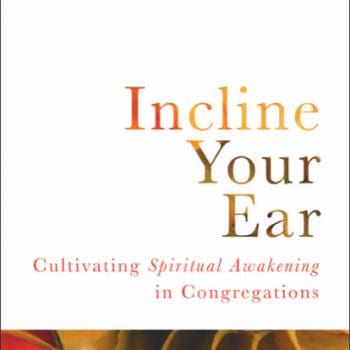 To practice spiritual discernment—the process of making faithful choices—you must have as many facts as you can gather. But, how do you do that if you don’t trust the facts you are given?
To practice spiritual discernment—the process of making faithful choices—you must have as many facts as you can gather. But, how do you do that if you don’t trust the facts you are given?
As I write this, the U.S. Senate is considering healthcare legislation not yet analyzed by the Congressional Budget Office, and if you go online to figure out what is actually in that bill you hear a lot of “facts” that are contradictory. If I were a Senator doing discernment in this situation, I’d want to make sure I had the most accurate information available.
Add to this the gaslighting that goes on between warring political factions, with each side accusing the other of peddling fake news, and it becomes a temptation to throw up our hands and say “who knows what is true anymore?”
I’m fearful that this breakdown in trust on a national level will lead to a similar breakdown in our personal lives. (If it hasn’t already.)
We’ve all heard horror stories of vocational discernment in which a person does their due diligence before accepting a job offer, hears only good things about the workplace, and decides to take the job. Then the offer is withdrawn. I’ve even heard of people moving across country for a job that evaporated once they arrived. Talk about a betrayal of trust!
If we can’t trust one another, how can we ever make faithful choices? Here are three suggestions from the tradition of Christian spiritual discernment that may help:
- Be as wise as serpents and gentle as doves. This saying of Jesus assures us that betrayal of trust is a fact of life. So, having a little skepticism is a good thing. That’s the serpent side of life. Deepening your investigation, covering all angles, and getting agreements in writing are wise practices. How you approach people you need information from is the “gentle as doves” part. It does no good to go about life angry and boorish, expecting to be betrayed. Assume the best while you are keeping a keen eye on the details just in case. You know, “trust but verify.”
- Listen to your gut. In spiritual discernment, you balance the quest for facts with that part of you that puts up red flags, says “slow down,” and informs you when it is safe to move forward. If some information you are gathering sounds incomplete or feels a bit “off,” put it to a tougher test. Pray more and listen in silence. Our inner wisdom and bodily senses (tension in muscles, butterflies in the stomach, stiff neck and so forth) have discernment information, too. They caution us not to do all this work just in our head.
- There is no one holy but God. This saying from Jesus reminds us that, as humans, we are going to make mistakes, misjudge motives and lose our way from time to time. People are going to sell us fake news. They will let us down occasionally. The Holy One is still with us, urging us to adjust our discernment. Putting our life choices to discernment doesn’t mean we will always make perfect choices. Sometimes getting off the path or feeling our discernment went awry is the doorway to a deeper relationship with God. We learn something important about ourselves and others.
The final truth about discernment is that it is always ongoing. Our choices will always need to be adjusted. Our invitations from God change over time. Discernment helps us trust in God even when we may not be able to trust in all people.
Want to try spiritual direction? I have openings in my schedule for new directees—regardless of where you live. I can work by phone, Skype or if you live in the Phoenix metro area we can meet in person. Contact me at [email protected] or visit www.teresablythe.net. Also visit my website for the Phoenix Center for Spiritual Direction.
It’s easy to subscribe to this blog and get updates in your email inbox. Check out the right side of the webpage and fill out the form under GET PATHEOS NEWSLETTERS. New posts come to your inbox when published.
Thank you for following this blog!












